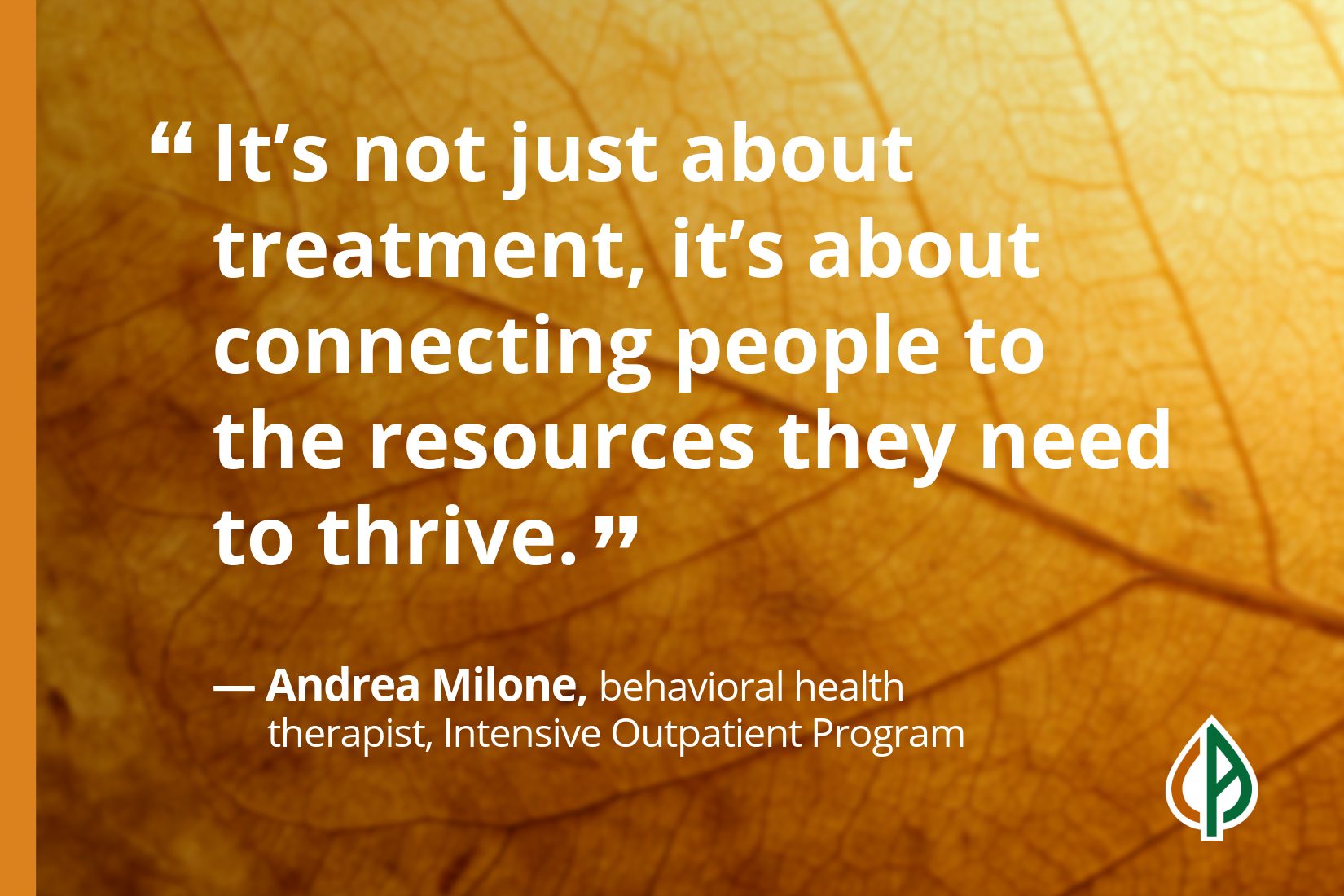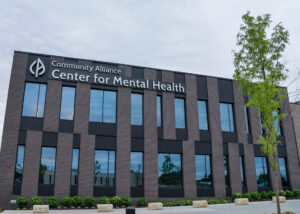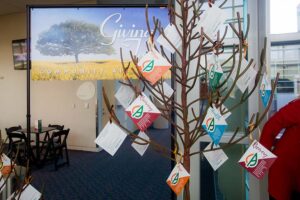How Community Alliance’s Intensive Outpatient Program empowers individuals in their sobriety journey

For mental health and substance use treatment, having an empathetic environment and access to whole-person support is key to long-term recovery and lasting change. That’s why Community Alliance’s Intensive Outpatient Program (IOP) combines group and one-on-one therapy with substance use education and resource connections. Kevin Gilliam, a behavioral health therapist, and Andrea Milone, a behavioral health therapist also trained as a peer support specialist, are two dedicated team members who guide participants on their journey, leveraging recovery best practices alongside their own expertise and lived experiences.
Who IOP serves
The Intensive Outpatient Program at Community Alliance is open to anyone who has a desire to stop using drugs or alcohol and take their next step toward recovery. The program is designed to help individuals with co-occurring mental health and substance use disorders, but a mental health diagnosis is not a requirement to enroll. Individuals who want to join the program do not need to be currently enrolled in any other Community Alliance services.
“We receive referrals from wellness court, community partners and the probation office, but we also welcome walk-ins,” Andrea said. “There will never feel like there’s a perfect moment to enroll, so when you hear that voice inside saying ‘maybe you should get help,’ that’s when it’s the right time to walk in.”
Kevin echoed the sentiment. “The only real requirement is that someone is ready to make a change. If they’ve taken that first step to ask for help, we’re here for them.”
The program’s comprehensive topics support recovery from every angle, including self-care, coping skills, neurological effects of addiction, relapse prevention and recovery management plans, triggers and cravings, healthy boundaries and support systems, hope-building activities and more.
Individuals define their own success
Success in IOP doesn’t follow a one-size-fits-all formula. For some, it’s as simple as showing up to group therapy. For others, it may be the breakthrough moment when they realize they’re capable of making different choices.
“Half the battle is just showing up,” Andrea explained. “It can be hard for a lot of people, but showing up is a huge success on its own. For some, being honest about relapsing is success. But overall, success is making a different choice to get different results.”
Sometimes, there are “lightbulb” moments when a person who was initially unsure about being in the program starts to engage deeply with the work. “When I see that ‘click’ happen, and they get really engaged, that’s success to me,” Kevin said.
Leading through empathy
Community Alliance’s IOP stands out not only because of the comprehensive treatment it offers but also because of the lived experience the team brings. Both Kevin and Andrea have been through their own struggles with mental health and addiction, and their personal journeys make them uniquely suited to help others.
“For me, it’s about paying it forward,” Kevin said. “I had an amazing therapist who supported me through my recovery, and I wanted to be that person for others. We’ve actually had a few people who have graduated from our program go on to train as peer support specialists, and now they’re working at Community Alliance alongside us.”
Andrea, who is soon celebrating seven years of sobriety, shares a similar motivation. “If I can get sober, stay sober and manage my mental health, I believe anyone can. I want to be a guiding light for others,” she shared.
Together, the two forge an authentic connection with participants. “It creates a real family dynamic in the group,” Andrea said. “We’re there for each other, and even though it’s sad to see someone go, we’re so proud when they do.”
What also sets the program apart is its flexibility. While Community Alliance’s IOP follows Certified Community Behavioral Health Clinic (CCBHC) standards, the team goes above and beyond, adjusting the frequency of sessions and check-ins based on individual needs.
“Some therapists will only meet with people at their scheduled time, but Andrea and I strive to make ourselves available whenever someone needs to talk,” Kevin said.
“I also have experience on the street outreach team at Community Alliance, so I know the resources available in the community,” Andrea added. “It’s not just about treatment, it’s about connecting people to the resources they need to thrive.”
Continuing support after IOP
Recovery is a life-long journey, not a destination. IOP is just the beginning, but the support doesn’t end with the program.
“Once people finish IOP, we can step them down into individual therapy services at Community Alliance, which is a huge benefit,” Kevin said. “That’s something a lot of providers don’t offer. More than half of the people we serve stay on for individual therapy sessions after IOP.”
Both Kevin and Andrea emphasize the importance of nonjudgmental support. “Addiction isn’t a choice,” Kevin explained. “It hijacks the brain and convinces you that you need it to survive. That’s something people need to understand when supporting someone in recovery.”
Andrea also hopes people find faith in their unique journey. “Recovery takes time. It’s not a race. People are wildly capable of achieving incredible things when they invest in themselves.”
How to get involved with our Intensive Outpatient Program
For those who may not have a referral, Community Alliance welcomes walk-ins Monday through Friday from 8:30 a.m. to 5 p.m. Individuals will meet with a peer support specialist on the rapid response team to discuss their interest in the program or their needs in general — even if they’re in crisis.
“We have so many services under one roof,” Andrea said. “Even if someone is at a point of crisis, we can do a warm hand-off to our crisis team to address their immediate needs. We’re empathetic to the way mental health can affect every area of your life and want to be of service to you.”
All it takes is reaching out for help. We’re here for you.



